I am implementing the nqueens min-conflict search as mentioned by
Norvig, S., & Peter, J. R. and. (2014). Artificial Intelligence A Modern Approach. In Pearson (Vol. 58, Issue 12).

The authors mention this heuristic alone is super efficient:
Yet when I implement it I cannot solve an over 5000 in less than a min. While the authors speed of million-queens in 50 iterations, my implementation often goes over the 1000 iterations for 5000-queens. Another question mentions similar result.
Any ideas on what I am doing wrong? Is it algorithmic or am I using a loop where I shouldn't?
update() is the main method by the way.
list<unsigned> rowsInConflict(const unsigned currentState[]) {
list<unsigned> rowsInConflict; //TODO change to map
for (unsigned row = 0; row < boardSize; row++) {
for (unsigned otherRow = 0; otherRow < boardSize; otherRow++) {
if (isConflict(row, currentState[row], otherRow, currentState[otherRow])) {
rowsInConflict.push_front(row);
debug("row in conflict " + to_string(row));
rowsInConflict.push_front(otherRow);
//return rowsInConflict;
}
}
}
return rowsInConflict;
}
bool update(unsigned currentState[]) {
unsigned randomRow, column;
list<unsigned> conflictRows = rowsInConflict(currentState);
if (conflictRows.empty()) {
return true;
}
list<unsigned>::iterator it = conflictRows.begin();
std::advance(it, rand() % conflictRows.size());
randomRow = (unsigned) *it;
column = getMinConflictColumn(currentState, randomRow);
placeQueen(currentState, randomRow, column);
return false;
}
void solve_nqueen(unsigned size, bool isVerbose) {
unsigned rowSpace[size];
while (!update(rowSpace)) {
if (iterations >= 1000) {
cout << "Random restart." << endl;
intialize(rowSpace);
iterations = 0;
}
iterations++;
}
printBoard(rowSpace);
}
};
